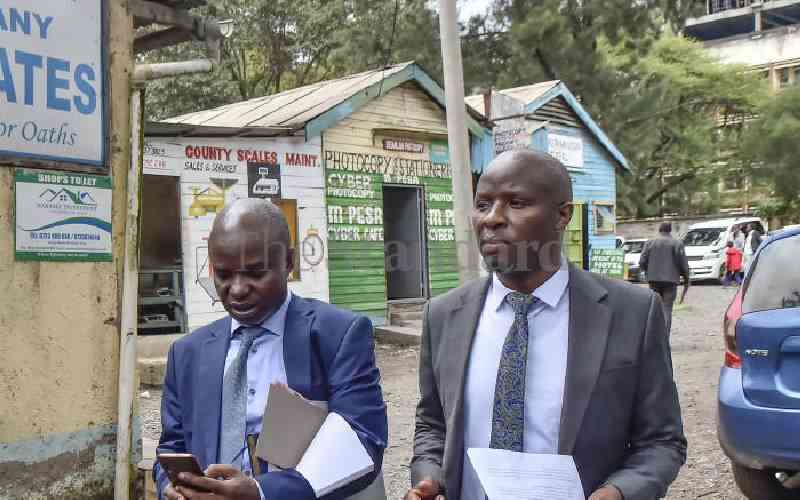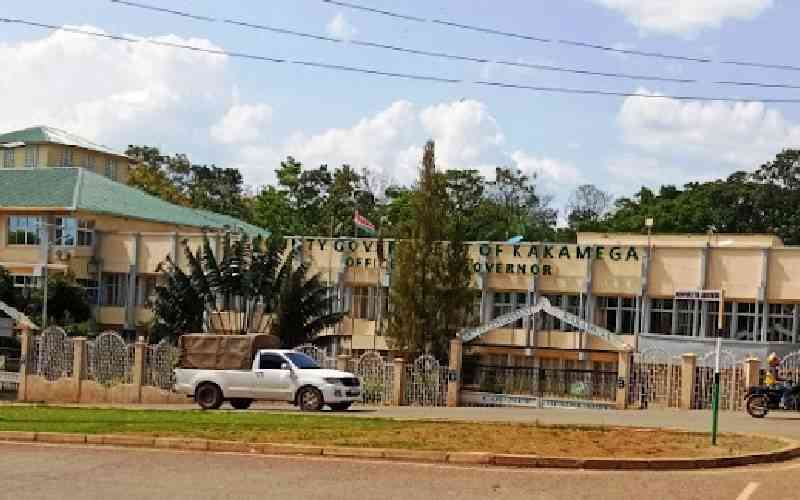By Lillian Aluanga
Sometime in 1929, a Kenyan politician in his mid-30s visited London on an important mission.
At the time, the politician who would later become president was acting on the behest of the Kikuyu Central Association and wanted to share Africans’ concerns over land, which had been taken away by British settlers over the years.
The politician’s views would later be published in British newspapers, but the issue that had prompted his first visit to the UK, would remain a permanent fixture in Kenya’s history.
In successive years, land would remain the subject of numerous commissions and reports. But to date, all there is to show for these efforts remains just that.
No political will
"There has never been much political will to implement findings of Land Commissions," says University of Nairobi lecturer Paul Syagga.
Besides the Njonjo Report, the Land Economics lecturer says implementation of the 2004 Ndung’u Commission on Illegally and Irregularly acquired public land was more difficult because there was no framework to facilitate change.
The Njonjo Commission of Inquiry into Land Law systems was established in 1999 and focused on coming up with principles of a National Land Policy framework, the constitutional position of land and formulation of a new institutional framework for land administration. Former Attorney General Charles Njonjo chaired it.
"The Njonjo report was released during former President Moi’s tenure, but when the Narc regime came to power in December 2002, the report was forgotten," says Prof Syagga. While it is true that several land reports have been abandoned after a change of regime, Syagga says, there are aspects of the Njonjo report that feature in the current Draft National Land Policy.
The lecturer says the Ndung’u Commission’s report could also have run into trouble because it was viewed by some quarters as being ‘speculative’. Besides this, he says, there is no mechanism of repossessing irregularly acquired land, short of compulsory acquisition, which would involve tedious court processes.
Chairman of the Institution of Surveyors of Kenya, Mwenda Makathimo, says it is crucial to draw a distinction between constitutional and presidential commissions in understanding why many reports have never been implemented.
"We have never had a constitutionally formed land commission which enjoys security of tenure. All the commissions we have had on land have been presidential," he says.It is this history of political appointments to such commissions which some say must end if land matters are to be resolved.
"We must learn to de-politicise land and remove it from being a tool of political patronage," Makathimo says. Land Commissions date back to pre-independence era, stretching over the three regimes.
Former Nyeri Town MP Wanyiri Kihoro traces this to 1932, a time the country’s population was barely four million. Long before then the British Governor had in 1905 set up a land commission to find ways of making the resource available for white settlers for development. Besides the Agricultural Commission of 1929, there was also the 1932 Kenya Land Commission, all targeted at addressing the land question.
Stay informed. Subscribe to our newsletter
Kihoro, who served as assisting counsel to the 2004 Ndung’u Commission, says the country has been led by big landowners, making it difficult to implement land reforms.
Landowners, he says, have always controlled the country as far back as 1904 when British settlers signed land treaties with the Maasai, a move whose repercussions would be felt 100 years later. It is this colonial legacy, Kihoro says, which continues to hold sway in land matters regardless of the numerous commissions.
Absentee landlords
Even parliamentary committees have not had much luck either.
Between 1971 and 1972, a parliamentary select committee was set up to look into the perennial land problems at the Coast. While it is not clear whether the committee’s findings were ever implemented, land ownership along the 10-mile coastal strip was the subject of numerous committee, including one headed by then Lang’ata MP Mwangi Maathai. Besides attempts to adjudicate land problems at the Coast in the mid 1980s and tribunals set up to look into absentee landlords in the province, the defunct Constitution of Kenya Review Commission is also on record for having collected views on land matters countrywide.
"Hansard records show that debate on land isn’t a new issue. Neither is the setting up of commissions and parliamentary committees to look into the matter," says former Butere MP Martin Shikuku.
Shikuku blames successive regimes for failing to implement recommendations of land commissions because of vested interests and hopes the Draft National Land Policy’s fate will be different.
For former Bura MP Mohammed Galgalo, commissions on land have been nothing short of a smokescreen used by politicians to appease the public.
"Successive regimes have never been serious about tackling land issues. No Land Commissions nor reports will ever bring change," says Galgalo, who believes nothing short of constitutional change will sway the order of things.
 The Standard Group Plc is a
multi-media organization with investments in media platforms spanning newspaper
print operations, television, radio broadcasting, digital and online services. The
Standard Group is recognized as a leading multi-media house in Kenya with a key
influence in matters of national and international interest.
The Standard Group Plc is a
multi-media organization with investments in media platforms spanning newspaper
print operations, television, radio broadcasting, digital and online services. The
Standard Group is recognized as a leading multi-media house in Kenya with a key
influence in matters of national and international interest.
 The Standard Group Plc is a
multi-media organization with investments in media platforms spanning newspaper
print operations, television, radio broadcasting, digital and online services. The
Standard Group is recognized as a leading multi-media house in Kenya with a key
influence in matters of national and international interest.
The Standard Group Plc is a
multi-media organization with investments in media platforms spanning newspaper
print operations, television, radio broadcasting, digital and online services. The
Standard Group is recognized as a leading multi-media house in Kenya with a key
influence in matters of national and international interest.







